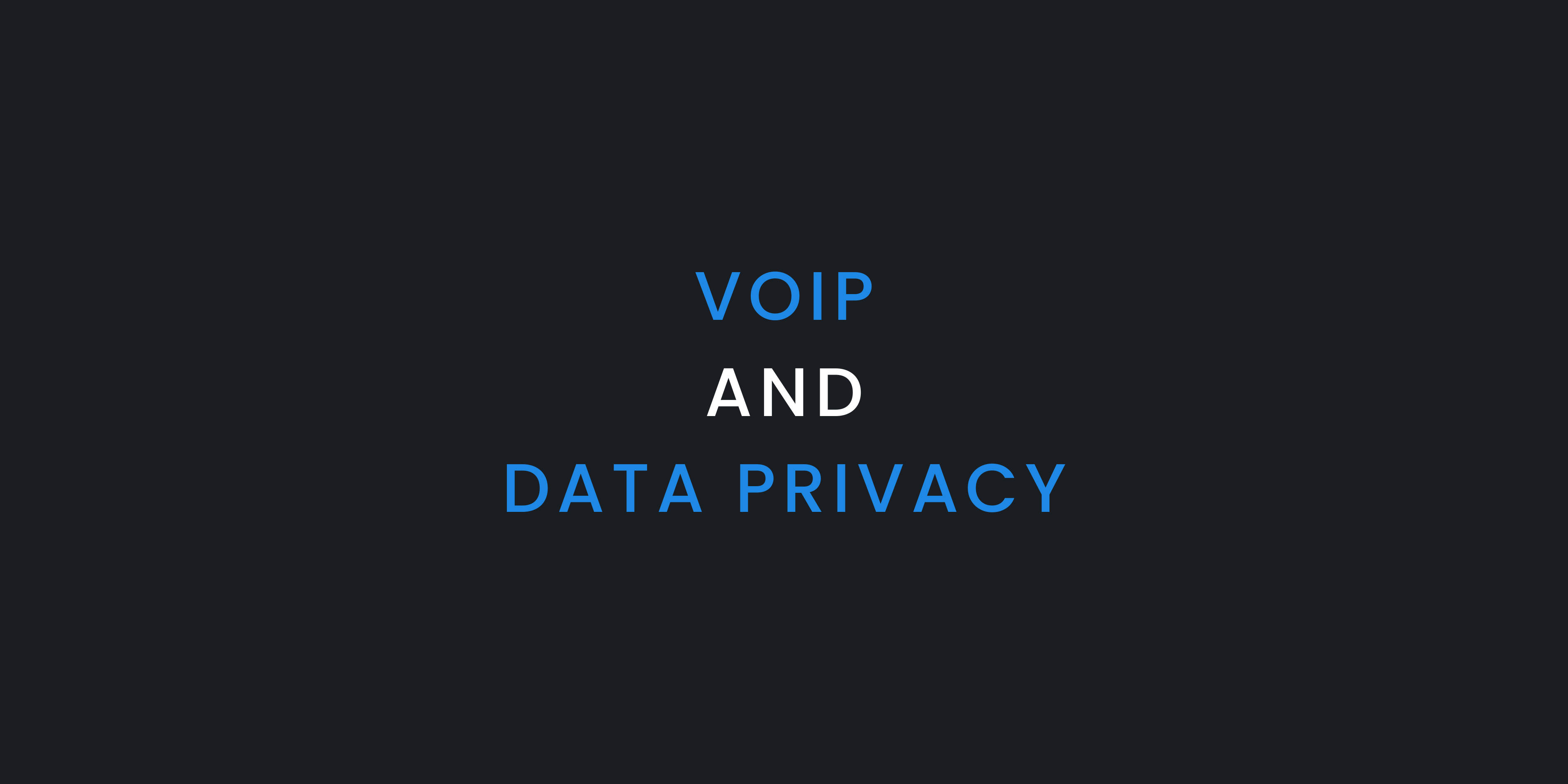
In an age where online communication is important, ensuring data privacy in VoIP communications is crucial. VoIP technology, which enables internet-based voice calls, has revolutionised connectivity but also brings significant data privacy concerns that must be addressed to protect users from breaches and misuse.
Key Summary
- VoIP services like Skype and Zoom improve communication but raise data privacy concerns.
- Regulations like GDPR and CCPA set strict data privacy standards for VoIP providers.
- Transparency is ensured through clear data privacy policies and user consent requirements.
- Data security measures, such as end-to-end encryption and regular audits, protect user information.
- Compliance is enforced with fines and oversight to maintain global data privacy standards.
The Rise of VoIP
VoIP services, such as Skype, Zoom, WhatsApp, and Microsoft Teams, have seen a meteoric rise, particularly accelerated by the global shift towards remote work and virtual collaboration. These platforms offer an array of benefits, including cost savings, flexibility, and a multitude of features that enhance communication. Yet, the transition from traditional telephony to internet-based communication introduces several data privacy challenges.
1. Data Transmission Over the Internet
Unlike traditional phone lines, VoIP calls transmit data packets over the internet. These packets can potentially be intercepted, leading to unauthorised access to conversations.
2. Metadata Collection
VoIP services often collect metadata, such as call duration, participants, and timestamps. While this data might seem harmless, it can reveal significant insights about user behaviour and patterns if mishandled.
3. Storage of Data
Many VoIP providers store call logs, recordings, and other communication data on their servers. This centralised storage poses a risk of data breaches, where sensitive information can be exposed.
4. Third-Party Integrations
VoIP platforms frequently integrate with third-party applications to enhance functionality. These integrations can introduce additional vulnerabilities if the third-party services do not adhere to stringent data privacy standards.
The Role of Regulatory Framework
The digital age has made communication easier with VoIP services, but it also requires strong data privacy protections. Regulations are crucial in ensuring that these services keep users’ information safe. Let’s explore how these rules affect VoIP communications.
1. Clear Data Privacy Standards
Regulatory frameworks like the General Data Protection Regulation (GDPR) in Europe and the California Consumer Privacy Act (CCPA) in the United States establish clear and comprehensive data privacy standards. These regulations mandate that VoIP service providers implement robust data protection measures. Key provisions include:
- Data Minimisation. Service providers are required to collect only the data necessary for the specific purpose of the communication service, reducing the risk of unnecessary data exposure.
- Purpose Limitation. Data collected for one purpose cannot be repurposed without user consent, ensuring that VoIP providers use data only for its intended function.
2. Transparency
Transparency is a cornerstone of effective data privacy. Regulatory frameworks ensure that users are fully informed about how their data is being used. This includes:
- Data Privacy Policies. Regulations require VoIP providers to have clear, concise, and accessible data privacy policies that explain what data is collected, how it is used, and who it is shared with.
- Consent Mechanisms. Users must give explicit consent before their data is collected or processed. This empowers users to control their data and make informed decisions about their data privacy.
3. Data Security
Regulatory frameworks mandate rigorous data security measures to protect user information from breaches and unauthorised access. VoIP providers must adhere to:
- Mandatory Encryption Standards. Regulations often require the use of end-to-end encryption to ensure that data is secure during transmission.
- Regular Audits. Providers must conduct regular security audits and risk assessments to identify vulnerabilities and implement necessary improvements.
4. Data Breach Notification
In the event of a data breach, regulatory frameworks have clear guidelines for how VoIP providers must respond. This includes:
- Prompt Notification. Providers must notify regulatory authorities and affected users within a specified timeframe. For example, the GDPR mandates notification within 72 hours of discovering a breach.
- Mitigation Plans. Providers must have robust incident response plans to mitigate the impact of data breaches and prevent future occurrences.
5. Enforcement
Effective enforcement mechanisms are crucial for the success of regulatory frameworks. These mechanisms ensure compliance and deter violations through:
- Fines and Penalties. Regulations like the GDPR impose significant fines for non-compliance, which can be as high as 4% of a company’s annual global turnover or €20 million, whichever is greater.
- Regulatory Oversight. Dedicated regulatory bodies oversee compliance, conduct investigations, and enforce penalties for violations.
Global Impact
The global nature of VoIP communications necessitates a harmonised approach to data privacy. While different regions have their own regulations, there is a growing trend towards convergence in data privacy standards. This harmonisation ensures that regardless of where users or providers are located, there are consistent protections in place.
For instance, the GDPR has influenced data privacy laws worldwide, inspiring similar regulations in other regions. This global alignment helps VoIP providers implement uniform privacy measures, simplifying compliance and enhancing user trust.
Conclusion
As VoIP continues to reshape the landscape of digital communication, prioritising data privacy is crucial. By adopting best practices and choosing VoIP services that prioritise security, users can enjoy the benefits of internet-based communication without compromising their privacy. Furthermore, continued advocacy for stringent regulatory measures will ensure that data privacy remains at the forefront of technological advancements in communication.
In a world where our conversations travel across online highways, protecting the data privacy of these exchanges is not just a technical necessity but a fundamental right.
